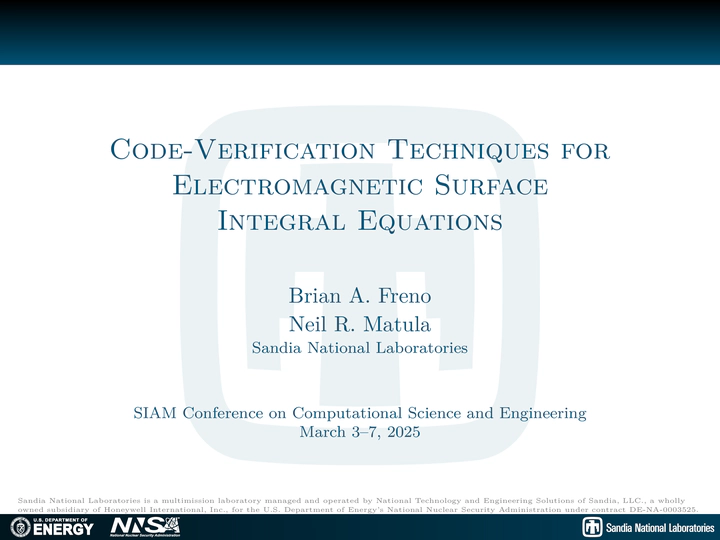Code-Verification Techniques for Electromagnetic Surface Integral Equation

Abstract
Code verification is an important step towards establishing the credibility of the results of computational physics codes by assessing whether the underlying numerical methods have been correctly implemented. The discretization of differential, integral, or integro-differential equations necessarily incurs some truncation error, and thus the approximate solutions produced from the discretized equations will incur an associated discretization error. If the solution to the problem is known, a measure of the discretization error may be evaluated directly from the approximate solution. The code may be verified by examining the rate at which the error decreases as the discretization is refined, thereby verifying the observed order of accuracy of the discretization scheme is the expected order of accuracy. Electromagnetic surface integral equations yield many code-verification challenges due to the various sources of numerical error and their possible interactions. These error sources arise from the use of basis functions to approximate the solution, quadrature to numerically integrate, and planar elements to represent curved surfaces. In this work, we provide approaches to separately measure the numerical errors arising from these different error sources using manufactured solutions. We demonstrate the effectiveness of these approaches for cases with and without coding errors.